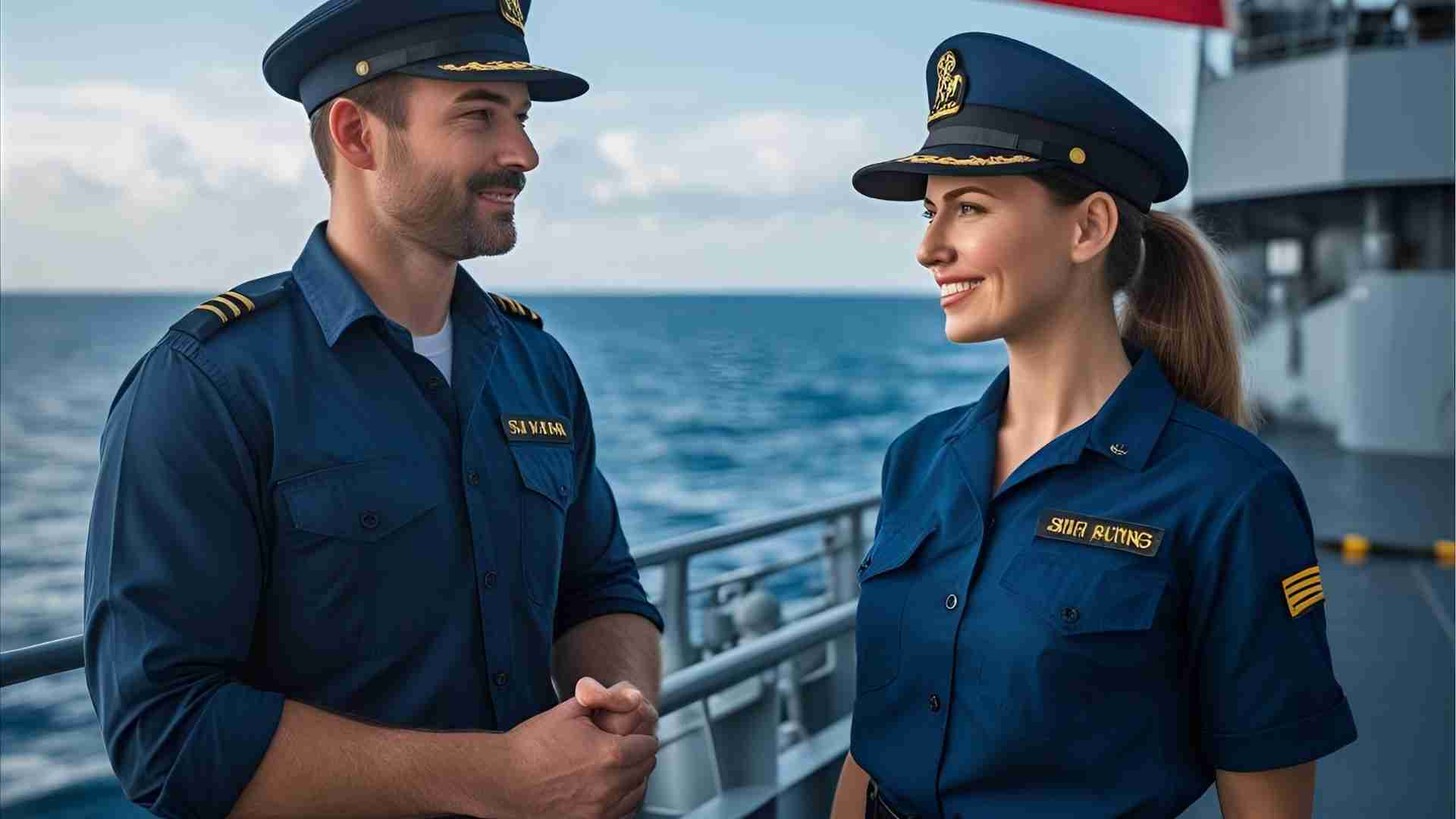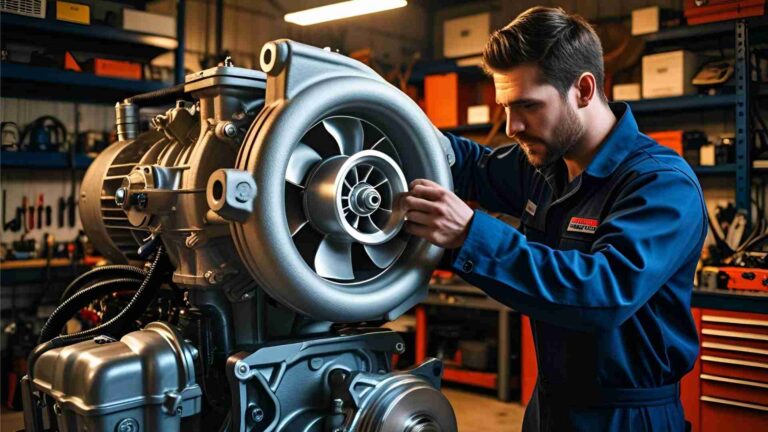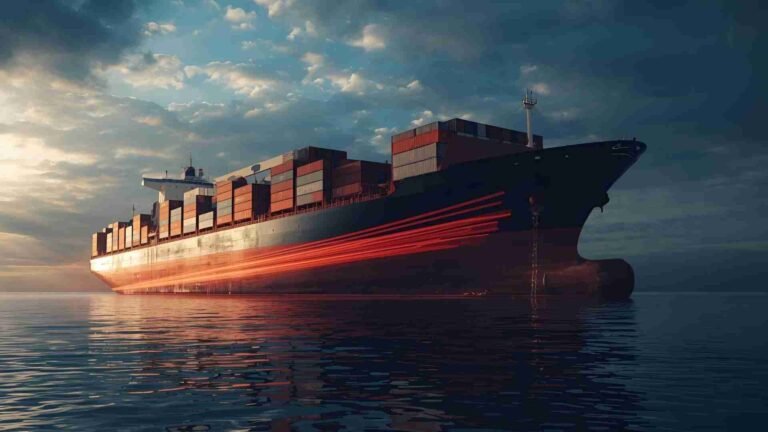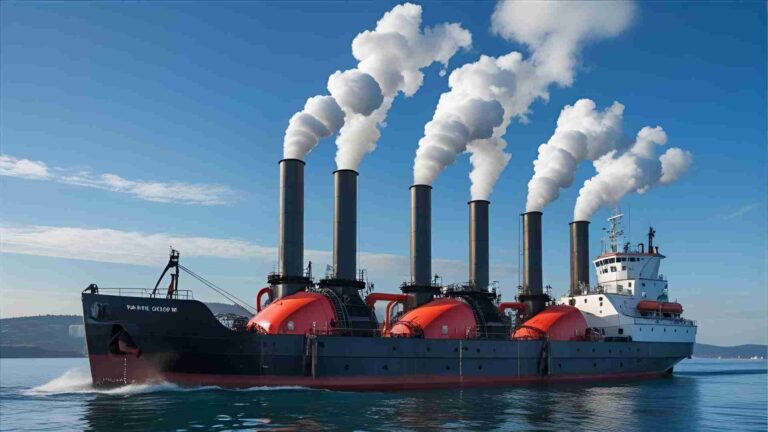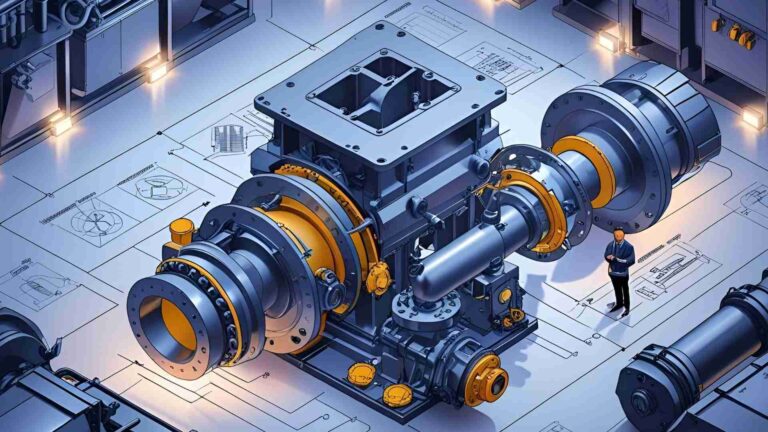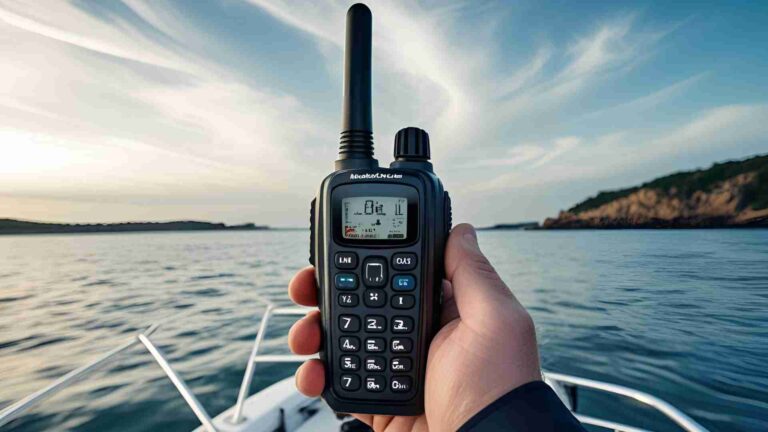Ship Ratings: Roles, Responsibilities, and Career Insights
Explore ship ratings’ roles, responsibilities, career paths, salaries, and lifestyle in this comprehensive guide to seafaring careers.
The maritime industry is the lifeblood of global trade, facilitating the movement of goods and people across oceans. At the heart of this industry are ship ratings—non-officer crew members who perform essential tasks to ensure a vessel’s safe and efficient operation. These seafarers work under the guidance of deck and engine officers, handling everything from maintenance to cargo operations. This article provides an in-depth exploration of ship ratings, covering their roles, responsibilities, career progression, training requirements, earning potential, lifestyle, and future prospects in the maritime sector.
Understanding Ship Ratings
Ship ratings, often referred to as non-officer seafarers, are the backbone of a ship’s crew. They execute critical tasks that keep vessels operational, safe, and clean. Unlike officers, who hold Certificates of Competency (CoC), ratings focus on hands-on duties under supervision. Their roles are diverse, spanning deck, engine room, and catering departments, each with distinct responsibilities.
Categories of Ship Ratings
Ship ratings are broadly categorized into three groups:
- Deck Ratings: These seafarers work on the ship’s exterior, handling tasks like mooring, anchoring, and deck maintenance. Common roles include:
- Bosun: The senior deck rating, responsible for supervising deck crew and coordinating maintenance tasks.
- Able Seaman (AB): An experienced deck rating who assists with navigation, watchkeeping, and cargo handling.
- Ordinary Seaman (OS): An entry-level role focused on basic deck tasks like cleaning and assisting with mooring.
- Engine Room Ratings: These ratings support the ship’s engineering team by maintaining and operating machinery. Key roles include:
- Motorman: Assists engineers with machinery maintenance and repairs.
- Oiler: Ensures machinery is lubricated and operational.
- Wiper: An entry-level engine room role responsible for cleaning and basic maintenance.
- Catering Ratings: These crew members manage food preparation and crew welfare. Common roles include:
- Chief Cook: Oversees meal preparation and galley operations.
- Steward: Maintains hygiene in living quarters and assists with food service.
Importance of Ship Ratings
Ratings are indispensable to a ship’s operation. Deck ratings ensure the vessel is seaworthy, engine room ratings keep machinery running smoothly, and catering ratings maintain crew morale through proper nutrition and living conditions. Their collective efforts ensure the vessel operates efficiently, adheres to safety standards, and supports the crew’s well-being.
Roles and Responsibilities of Ship Ratings
Each category of ship rating has distinct responsibilities, tailored to the ship’s operational needs. Below is a detailed breakdown of their duties.
Deck Ratings
Deck ratings are responsible for the ship’s exterior and operational tasks. Their duties include:
- Mooring and Anchoring: Securing the ship during docking or anchoring operations, which involves handling ropes, winches, and other equipment.
- Deck Maintenance: Cleaning, painting, and repairing deck surfaces to prevent corrosion and maintain seaworthiness.
- Cargo Operations: Assisting with loading and unloading cargo, ensuring it is properly secured to prevent shifting during transit.
- Watchkeeping: Performing lookout duties during navigation watches to monitor for hazards like other vessels or weather changes.
- Safety Drills: Participating in emergency drills, such as fire or abandon-ship exercises, to ensure preparedness.
- Security Rounds: Conducting patrols to maintain the ship’s security, particularly in high-risk areas.
Engine Room Ratings
Engine room ratings work in the heart of the ship, ensuring its mechanical systems function reliably. Their responsibilities include:
- Machinery Maintenance: Assisting engineers with routine maintenance, such as cleaning, lubricating, and inspecting engines and auxiliary systems.
- Repairs: Supporting engineers in troubleshooting and repairing machinery faults to prevent operational downtime.
- Engine Room Cleanliness: Keeping the engine room free of oil, debris, and hazards to maintain a safe working environment.
- Monitoring Systems: Observing gauges, meters, and control systems to ensure machinery operates within safe parameters.
Catering Ratings
Catering ratings focus on crew welfare, ensuring that living conditions and meals meet high standards. Their duties include:
- Meal Preparation: Planning and cooking meals for the crew, accommodating dietary preferences and restrictions.
- Galley Hygiene: Maintaining cleanliness in the galley to comply with food safety standards.
- Crew Quarters Maintenance: Cleaning cabins, common areas, and bathrooms to ensure a comfortable living environment.
- Inventory Management: Tracking food and water supplies to ensure adequate provisions for the voyage.
General Purpose Ratings
On smaller vessels or those with flexible crewing needs, general purpose (GP) ratings may perform a combination of deck and engine room tasks. These versatile seafarers adapt to the ship’s requirements, from assisting with cargo handling to supporting machinery maintenance.
Chart: Ship Ratings Hierarchy
Below is a visual representation of the ship ratings hierarchy, illustrating the roles within each department.
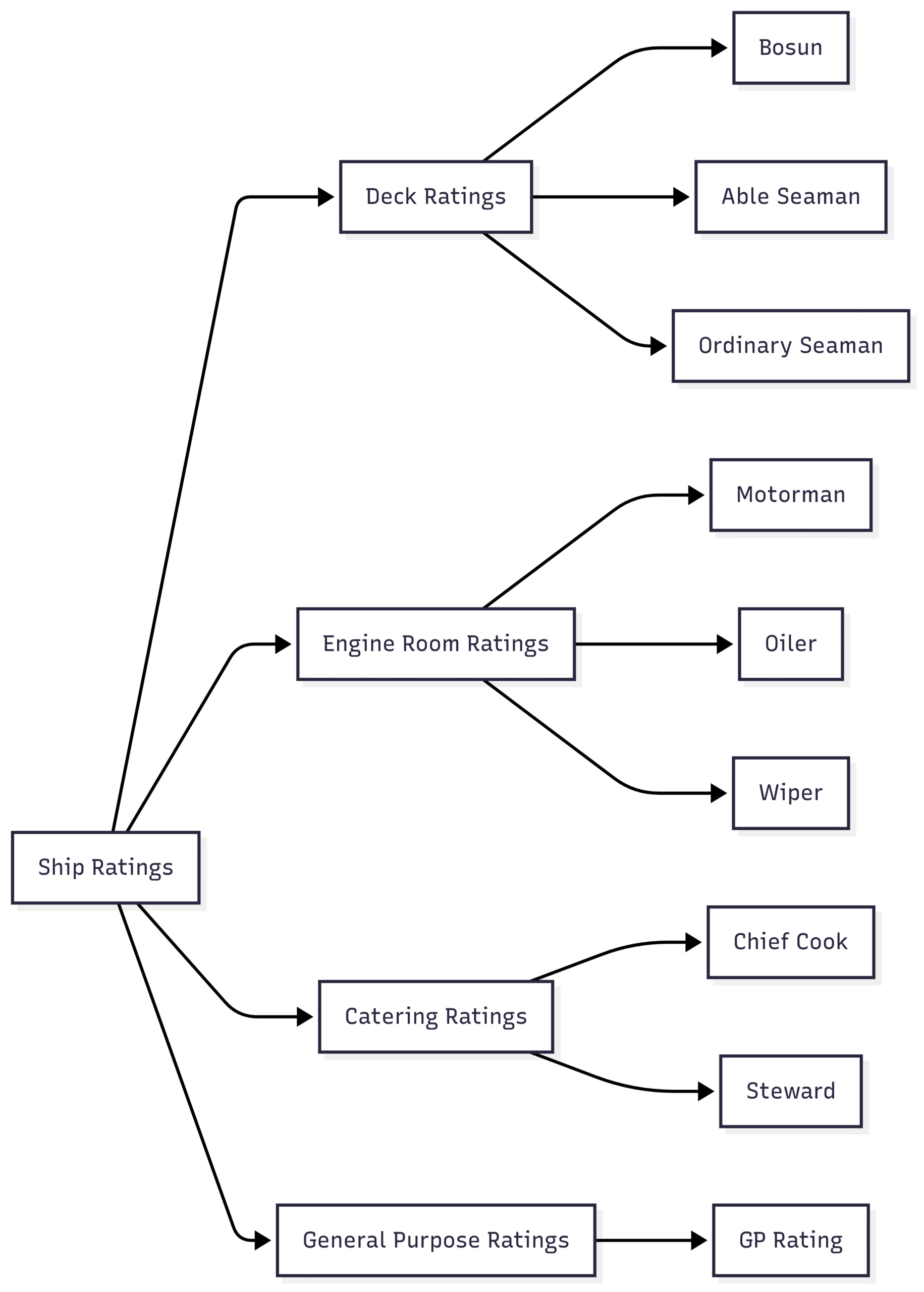
How to Become a Ship Rating
Becoming a ship rating is an accessible career path that does not require a college degree but demands specific training and certifications. Below are the key steps and requirements for aspiring ratings.
Entry Requirements
- Age: Candidates must typically be at least 18 years old.
- Education: A high school diploma or equivalent is usually sufficient.
- Medical Fitness: A valid seafarer’s medical certificate is mandatory to ensure physical and mental fitness for sea duties.
- Maritime English: Basic proficiency in English is essential for communication and safety compliance.
Required Certifications
Ship ratings must comply with the Standards of Training, Certification, and Watchkeeping (STCW) Convention, which sets global standards for seafarer training. Key certifications include:
- Basic Safety Training (BST): Mandatory for all seafarers, covering:
- Fire prevention and firefighting.
- Personal survival techniques.
- Elementary first aid.
- Personal safety and social responsibilities.
- Watchkeeping Certificates:
- Deck Ratings: Those involved in navigation watchkeeping (e.g., Able Seaman) require an STCW Watchkeeping Certificate for navigational duties.
- Engine Ratings: Those engaged in engineering watches need an STCW Watchkeeping Certificate for engine room duties.
- Specialized Endorsements:
- For tankers (oil, chemical, or LNG), additional training in tanker operations is required.
- Catering ratings may need food hygiene certifications.
- Proficiency in Survival Craft and Rescue Boats (PSCRB): Required for ratings involved in operating lifeboats or rescue boats.
Training Pathway
Aspiring ratings typically enroll in maritime academies or training institutions to complete STCW courses. These programs combine classroom instruction with practical training, covering topics like seamanship, engine maintenance, and safety procedures. New entrants often start as cadets or trainees, gaining hands-on experience under experienced crew members. This apprenticeship phase is critical for developing practical skills and preparing for advanced roles.
Table: Key STCW Certifications for Ship Ratings
| Certification | Purpose | Applicability |
|---|---|---|
| Basic Safety Training (BST) | Covers fire, survival, first aid, and safety skills | All ratings |
| Watchkeeping (Deck) | Qualifies for navigation watch duties | Deck ratings (e.g., Able Seaman) |
| Watchkeeping (Engine) | Qualifies for engine room watch duties | Engine ratings (e.g., Motorman) |
| Tanker Endorsement | Training for tanker operations | Ratings on tankers |
| Proficiency in Survival Craft | Skills for lifeboat and rescue boat operations | Select ratings |
| Food Hygiene (Catering) | Ensures safe food handling | Catering ratings |
Career Progression for Ship Ratings
Ship ratings have clear pathways for career advancement, allowing them to take on greater responsibilities or transition to officer roles.
Advancement to Senior Roles
- Leading Ratings: Experienced ratings, such as a Bosun or senior Motorman, take on supervisory roles, overseeing junior crew members.
- Officer Roles: With additional training and certifications, ratings can pursue a Certificate of Competency (CoC) to become deck or engine officers. This requires advanced STCW courses and significant sea time.
Specialized Certifications
Ratings can enhance their skills through specialized training, such as:
- Tanker Operations: Certifications for oil, chemical, or LNG tankers increase employability and earning potential.
- Advanced Machinery: Training in modern propulsion systems or automation technologies prepares ratings for high-tech vessels.
- Safety and Leadership: Courses in advanced safety management or leadership skills pave the way for supervisory roles.
Long-Term Opportunities
With dedication and upskilling, ratings can transition to roles like Third Mate, Third Engineer, or even higher officer positions. The maritime industry rewards experience and continuous learning, making it possible for ratings to build long and rewarding careers.
Earning Potential of Ship Ratings
Salaries for ship ratings vary based on role, experience, vessel type, and employer. Below is an overview of typical monthly earnings:
- Ordinary Seaman (OS): $800–$1,500 (entry-level).
- Able Seaman (AB): $1,200–$4,000, depending on experience and vessel complexity.
- Motorman: $1,200–$4,000, with higher pay for specialized vessels.
- Chief Cook: $1,200–$3,500, influenced by vessel size and crew demands.
- Specialized Vessels: Ratings on tankers or LNG carriers often earn premium wages due to the high-risk nature of these operations.
Factors Influencing Salaries
- Experience and Certifications: Advanced skills and certifications, such as tanker endorsements, lead to higher pay.
- Vessel Type: Specialized vessels like LNG carriers or cruise liners offer better compensation.
- Employer Policies: Salaries vary between shipping companies, with some offering bonuses or overtime pay.
- Geographic Region: Crews from certain regions may earn different wages based on labor market conditions.
Table: Salary Ranges for Ship Ratings
| Role | Monthly Salary Range | Notes |
|---|---|---|
| Ordinary Seaman (OS) | $800–$1,500 | Entry-level, minimal experience |
| Able Seaman (AB) | $1,200–$4,000 | Requires watchkeeping certificate |
| Motorman | $1,200–$4,000 | Varies by machinery complexity |
| Chief Cook | $1,200–$3,500 | Depends on crew size and vessel |
| Tanker Rating | $1,500–$5,000+ | Higher pay for specialized vessels |
Note: The International Labour Organization (ILO) sets a minimum monthly basic wage for able seafarers at $666, but actual earnings are typically higher due to market demand and additional allowances.
Lifestyle and Working Conditions
The life of a ship rating is both rewarding and challenging, characterized by unique working conditions and schedules.
Work Schedule
Ratings typically work on rotational schedules, such as six months onboard followed by two to three months of leave. During voyages, they work in shifts or “watches” (e.g., 4 hours on, 8 hours off) to ensure 24/7 operations. This demanding schedule requires adaptability and stamina.
Living Conditions
Modern vessels offer improved living conditions, including:
- Accommodations: Shared cabins with bunk beds, storage, and basic amenities.
- Meals: Provided free of charge, prepared by catering ratings.
- Recreational Facilities: Larger vessels may have gyms, lounges, or internet access, though connectivity remains limited at sea.
Challenges
- Isolation: Long periods away from family and friends can lead to feelings of loneliness.
- Physical Demands: Tasks like lifting heavy equipment or working in confined engine rooms are physically taxing.
- Harsh Conditions: Seafarers may face extreme weather, rough seas, or high-risk environments on specialized vessels.
Rewards
- Global Travel: Ratings visit ports worldwide, experiencing diverse cultures.
- Camaraderie: Living and working closely with crew members fosters strong bonds.
- Career Growth: Opportunities for advancement and skill development are abundant.
Market Needs and Future Prospects
The maritime industry continues to grow, driven by global trade and the demand for energy resources. Key trends shaping the demand for ship ratings include:
- Tanker and LNG Shipping: High demand for ratings with tanker endorsements due to the expansion of energy transport.
- Offshore Operations: Growth in offshore oil, gas, and renewable energy sectors requires skilled ratings.
- Cruise Industry: Luxury cruise liners need catering and housekeeping ratings to support passenger services.
Impact of Technology
Automation and digitalization are transforming the maritime sector. Ratings must adapt by acquiring skills in:
- Advanced Machinery: Knowledge of automated propulsion systems and digital controls.
- Environmental Compliance: Training in eco-friendly technologies to meet stricter regulations.
- Cybersecurity: Basic awareness of digital systems to protect vessel operations.
Future Outlook
The demand for skilled ratings is expected to remain steady, particularly in specialized sectors. Continuous upskilling will be essential to stay competitive in an evolving industry.
Advantages and Challenges of Being a Ship Rating
Advantages
- Global Exposure: Travel to diverse ports and interact with different cultures.
- Career Progression: Clear pathways to senior roles or officer positions.
- Financial Benefits: Competitive salaries, tax-free income in some regions, and no living expenses onboard.
Challenges
- Isolation: Extended time away from home can strain personal relationships.
- Physical Demands: Tasks require strength, endurance, and resilience.
- Work-Life Balance: Rotational schedules make it challenging to maintain a consistent lifestyle.
Conclusion
Ship ratings are the unsung heroes of the maritime industry, ensuring the smooth operation of vessels that power global trade. Their roles, spanning deck, engine room, and catering departments, are critical to a ship’s safety, efficiency, and crew welfare. While the career demands resilience and adaptability, it offers unique rewards, including global travel, competitive salaries, and opportunities for growth. By pursuing the necessary training and certifications, aspiring ratings can embark on a fulfilling career that supports the backbone of international commerce.
Happy Boating!
Share Ship Ratings: Roles, Responsibilities, and Career Insights with your friends and leave a comment below with your thoughts.
Read What is Carbon Offset Shipping? until we meet in the next article.
